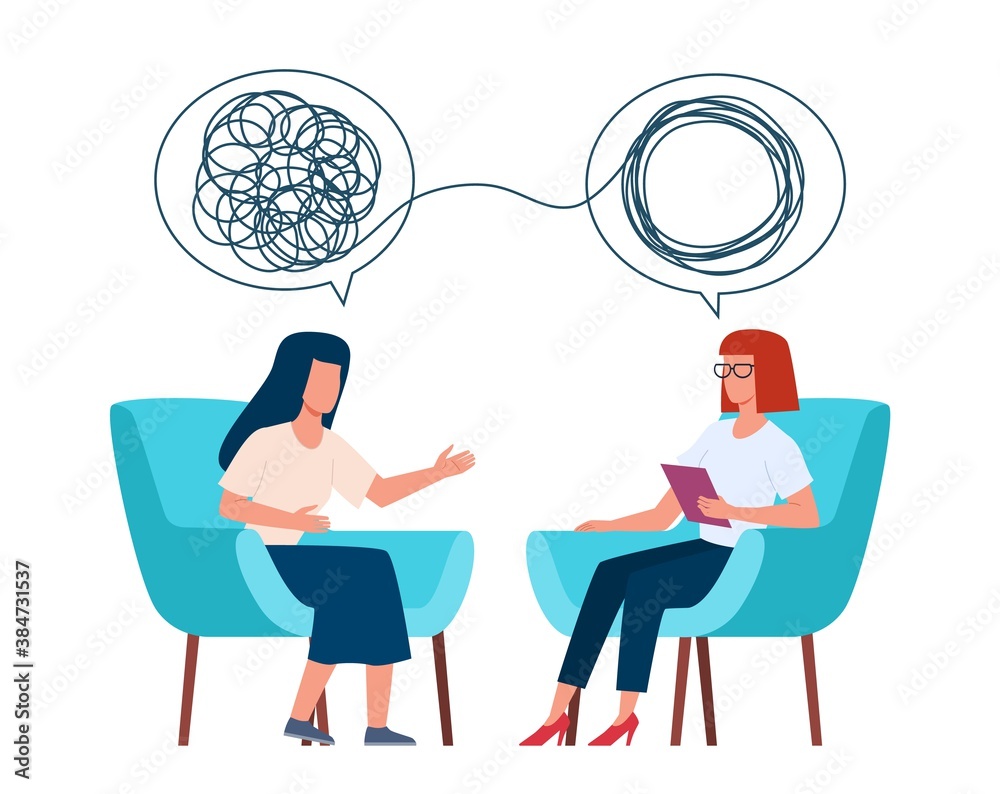Experience Lasting Modification with the Best Psychologist in Delhi: Right here's How
Experience Lasting Modification with the Best Psychologist in Delhi: Right here's How
Blog Article
Psych Therapy: A Comprehensive Overview to End Results and methods

Cognitive-Behavioral Treatment
Cognitive-Behavioral Therapy (CBT) is a commonly made use of psychotherapeutic approach that focuses on determining and modifying dysfunctional thinking and behavior patterns. Developed in the 1960s by Aaron T. Beck, CBT integrates behavior and cognitive concepts to address various psychological health concerns, consisting of clinical depression, anxiety, and stress-related disorders.
Strategies such as cognitive restructuring, exposure treatment, and skill-building workouts are typically used. Cognitive restructuring involves difficult and modifying negative idea patterns, while direct exposure treatment aims to minimize anxiety and stress and anxiety with steady exposure to feared scenarios or objects.
Evidence-based study supports the efficacy of CBT for a large array of psychological problems - Best Psychologist in Delhi. Its emphasis on ability acquisition and self-help methods encourages customers to continue progress independently after therapy wraps up. The flexibility and performance of CBT have actually made it a cornerstone in contemporary psychotherapeutic practice
Psychodynamic Methods
Rooted in the early theories of Sigmund Freud, psychodynamic techniques concentrate on discovering the subconscious mind and its impact on actions and feelings. These approaches intend to reveal surprise ideas and sensations that may be driving maladaptive habits and mental distress. Central to this method is the idea of internal problem, frequently coming from unsettled past experiences, particularly those from childhood.
Therapists utilizing psychodynamic strategies use numerous crucial techniques, including totally free association, where people are urged to talk freely to reveal subconscious material, and desire analysis, which analyzes the unexposed material of dreams. In addition, the expedition of transference and countertransference dynamics within the healing connection is essential. These interactions can give understandings into the patient's inner globe and relational patterns.
Psychodynamic therapy is commonly longer-term contrasted to other methods, providing a deep and comprehensive understanding of the individual's subconscious. Research study indicates that it can be specifically effective for intricate mental wellness issues, such as individuality disorders and persistent depression. By fostering self-awareness and emotional understanding, psychodynamic therapy looks for to bring subconscious material to consciousness, making it possible for individuals to attain lasting and significant adjustment in their lives.
Humanistic Strategies
Building on the foundations laid by psychodynamic strategies, humanistic techniques provide an unique viewpoint concentrated on specific potential and self-actualization. Originating in the mid-20th century, these methods focus on the integral benefits and growth capacity of people, stressing a holistic sight of human experience. Trick figures such as Carl Rogers and Abraham Maslow have actually considerably influenced this healing approach, which encompasses techniques like client-centered treatment and Gestalt treatment.
Client-centered treatment, created by Rogers, plays a pivotal function in humanistic methods. It depends on the specialist providing an environment of genuine favorable respect, compassion, and congruence. This promotes find here a risk-free area for clients to explore their feelings and experiences without judgment, assisting in self-discovery and individual growth. The therapist's role is more of a facilitator than an authority, encouraging clients to harness their internal sources for recovery.
Gestalt treatment, an additional crucial humanistic method, highlights present minute understanding and the combination of mind and body. By concentrating on the "present moment," clients gain better understanding into their current feelings and habits. Techniques such as role-playing and led visualization are often used to assist customers gain a deeper understanding of themselves, inevitably causing improved self-awareness and fulfillment.
Integrative Treatments
Integrative therapies stand for a pop over to these guys synthesis of various healing methods tailored to fulfill the special needs of each customer. This method recognizes the complexity of human psychology and the complex nature of mental health and wellness concerns. By combining components from different colleges of psychotherapy-- such as cognitive-behavioral therapy (CBT), psychodynamic treatment, and humanistic methods-- integrative treatments provide an even more flexible and alternative therapy paradigm.
Professionals of integrative treatment evaluate each customer's details needs, signs, and individual history to create a tailored treatment strategy. This individualized method improves the possibility for therapeutic success by attending to the source of psychological distress and promoting total well-being. Techniques might include mindfulness workouts, cognitive restructuring, and psychological handling, each picked to target various aspects of the client's issues.
Furthermore, integrative therapies emphasize the therapeutic relationship, seeing the client-therapist bond as an essential part of effective treatment. This relationship fosters a supportive environment where clients really feel safe to explore and resolve their problems. The flexibility of integrative treatments makes them appropriate for a broad series of conditions, consisting of anxiousness, anxiety, trauma, and interpersonal troubles, therefore boosting their applicability and efficiency in diverse clinical setups.

Gauging Therapy Results
Evaluating the efficiency of psychiatric therapy is important for both medical professionals and clients to ensure that the treatment is producing the wanted outcomes. To accomplish this, numerous methods and tools are used to gauge therapy outcomes systematically. Standard analysis tools, such as the Beck Depression Inventory (BDI) and the Generalized Stress And Anxiety Condition 7 (GAD-7), give quantitative data on signs and symptom intensity and adjustments with time.
In addition to standardized tools, qualitative techniques like client self-reports and scientific meetings supply valuable insights right into the individual experiences and regarded progression of customers. Routinely scheduled assessments, usually at the beginning, midpoint, and end of therapy, help in tracking the trajectory of improvement or identifying areas requiring change.
End result dimension is not limited to sign reduction; it additionally incorporates useful renovations in every day life, such as much better interpersonal partnerships, boosted work productivity, and enhanced total wellness. Modern developments in digital wellness have introduced mobile applications and on the internet systems that promote real-time tracking and feedback, better fine-tuning the assessment procedure.
Inevitably, a thorough technique to determining therapy end results makes sure that therapeutic treatments work, efficient, and customized to meet the private needs of customers, thus maximizing the general therapeutic experience.
Final Thought
Humanistic strategies concentrate on individual development and self-actualization, while integrative treatments incorporate numerous approaches for customized therapy strategies. Reviewing treatment end results via standard analyses and qualitative approaches makes sure a detailed internet understanding of efficiency, eventually directing clients towards sustaining psychological health and wellness improvements.
From the structured approach of Cognitive-Behavioral Treatment (CBT) to the deep expedition of the unconscious in psychodynamic therapy, each method brings unique advantages. Its emphasis on skill procurement and self-help methods equips clients to proceed development independently after treatment wraps up (Best Psychologist in Delhi). Secret figures such as Carl Rogers and Abraham Maslow have significantly affected this healing strategy, which encompasses methods like client-centered therapy and Gestalt treatment

Report this page